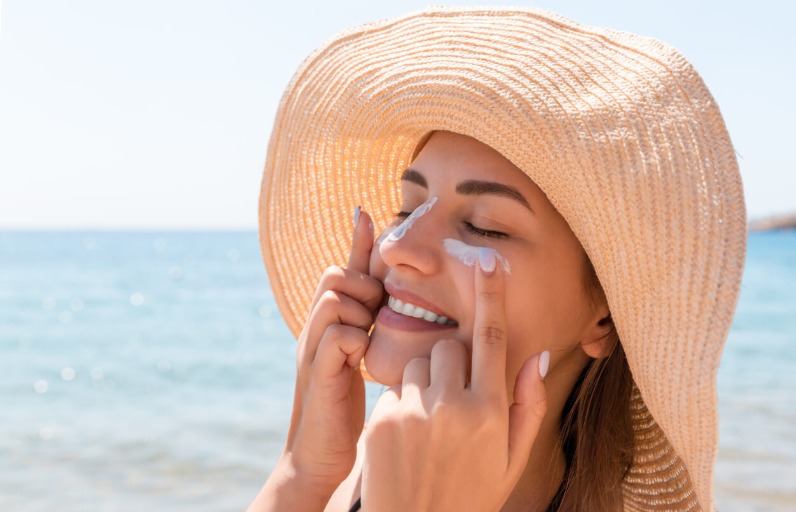
Should I choose mineral (physical) or chemical sunscreen? Which is better, what's the difference?
As we know, sunscreen is the most important part of a daytime skincare routine. Whether you prefer a matte or a 'dewy' finish, it can be challenging to find the one that suits you best. Sunscreen creams exist in three main forms—mineral, chemical, and hybrid—all of which offer protection against harmful UV rays. Stay with us to learn more about them!
Chemical Sunscreens
While physical sunscreens function as a reflective protective layer on the skin's surface, chemical sunscreens partially absorb into the skin and, through chemical reactions, prevent UV damage. Chemical sunscreens typically contain oxybenzone, dioxybenzone, avobenzone, octocrylene, homosalate, octinoxate, tinosorb S, and other chemical compounds that absorb and release harmful UV rays back into the environment. Their effects can be considered stronger, yet they easily degrade under UV exposure, so it's advisable to reapply every 2-3 hours. They provide high UVA protection.
Recommended for which skin types?
Chemical sunscreens don't leave a white layer on the skin as they absorb relatively quickly. Their consistency is much lighter than that of physical sunscreens, making them more likely to be appreciated by those with combination/oily skin, and their wear can be more comfortable.
Physical/Mineral Sunscreens
Mineral sunscreen, also known as physical sunscreen, contains mineral-based ingredients—zinc oxide and titanium dioxide. Thanks to these active ingredients, they are capable of deflecting harmful sun rays, serving as a protective shield. If the sunscreen label lists zinc oxide and/or titanium dioxide as the sole active ingredient(s), then it's a physical sunscreen. This type of formulation is ideal for those times when there's no time to spare since you apply it and it starts working immediately, unlike chemical sunscreens, which take about half an hour to provide effective sun protection. The SPF in this form is more stable, so it doesn't need to be reapplied as frequently as a chemical sunscreen. While known for their thicker consistency and the white cast they leave behind, mineral sunscreens have evolved to accommodate all skin tones, including deeper ones. Of course, it also depends on personal preference.
Recommended for which skin types?
These types of sunscreens are often recommended for children, pregnant women, normal, oil-deficient, dehydrated, sensitive, or acne-prone skin. Besides providing sun protection, zinc oxide also has anti-inflammatory properties, beneficial for reactive skin.
Leave a Reply
Please fill in the required fields. *